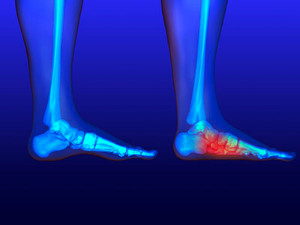
Running is a pursuit that empowers both body and mind, regardless of foot arch type. Flat feet, often misunderstood, should not deter anyone from lacing up and hitting the track. There are various types of flat feet, each requiring a unique approach. Flexible flat feet involve arches that appear when one is off the foot, and rigid flat feet exhibit little to no arch, even when lifted. While some flat feet do not pose issues, others may lead to discomfort or pain during running. Wearing customized footwear with proper arch support is essential. Orthotics or insoles can aid in maintaining alignment and reducing strain. Performing strengthening exercises targeting foot muscles can enhance stability. Running with flat feet is indeed possible with the right knowledge, care, and preparation. If you have flat feet and are interested in pursuing running as a hobby, it is suggested that you are under the care of a podiatrist who can provide you with useful information.
Flatfoot is a condition many people suffer from. If you have flat feet, contact one of our podiatrists from Florida Ankle & Foot Institute. Our doctors will treat your foot and ankle needs.
What Are Flat Feet?
Flatfoot is a condition in which the arch of the foot is depressed and the sole of the foot is almost completely in contact with the ground. About 20-30% of the population generally has flat feet because their arches never formed during growth.
Conditions & Problems:
Having flat feet makes it difficult to run or walk because of the stress placed on the ankles.
Alignment – The general alignment of your legs can be disrupted, because the ankles move inward which can cause major discomfort.
Knees – If you have complications with your knees, flat feet can be a contributor to arthritis in that area.
Symptoms
- Pain around the heel or arch area
- Trouble standing on the tip toe
- Swelling around the inside of the ankle
- Flat look to one or both feet
- Having your shoes feel uneven when worn
Treatment
If you are experiencing pain and stress on the foot you may weaken the posterior tibial tendon, which runs around the inside of the ankle.
If you have any questions please feel free to contact our offices located in Tavernier, Marathon, and Key West, FL . We offer the newest diagnostic and treatment technologies for all your foot and ankle needs.



